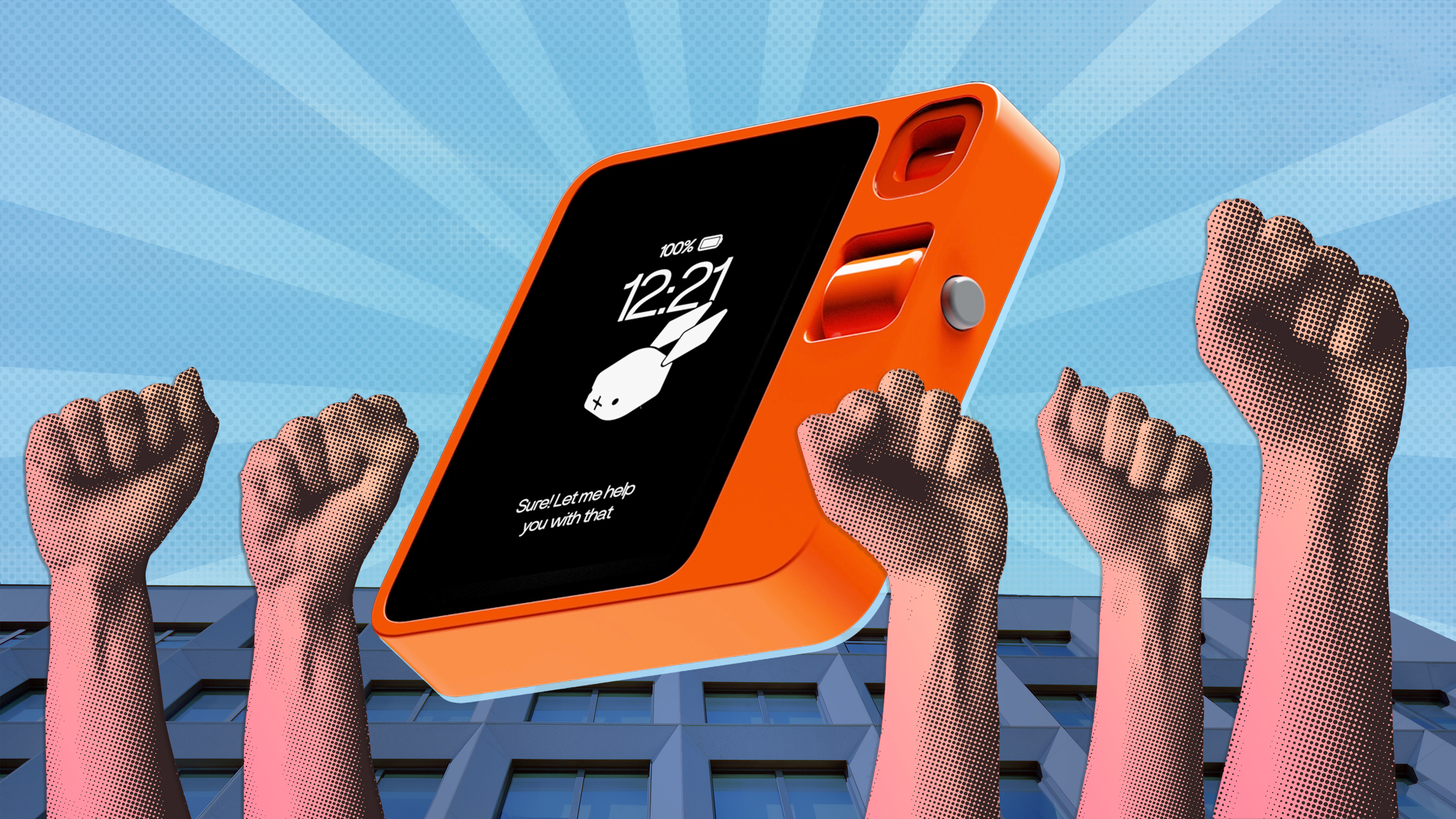Should you buy used AirPods? Here’s what happened when I bought them
I bought refurbished AirPods Pro to find out if used AirPods are worth the lower price
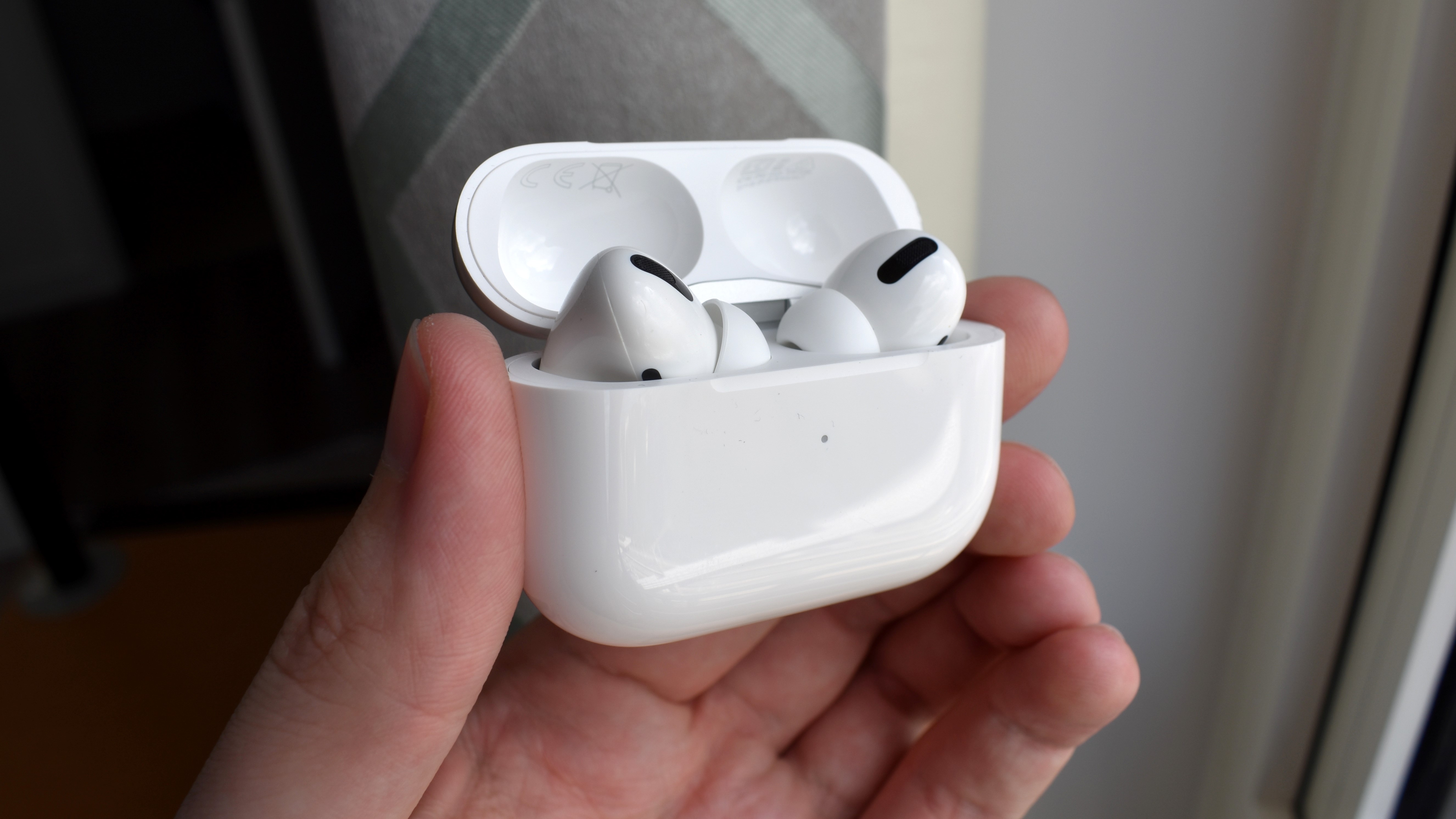
The Apple AirPods and AirPods Pro are not cheap earbuds, but there is one way to get them at a much lower price than usual. Buying refurbished tech is often a great way to upgrade your hardware while also securing a lower price — but is it really wise to buy used AirPods in the same way that you would a laptop or monitor?
Indeed, unlike these items, in-ear headphones have literally been inside another person, and while professional refurbishment will give the equipment a good clean, it’s understandable that some might be uncomfortable with the prospect. Ultimately, it comes down to two things: the quality of the AirPods that you’re buying second-hand, and whether the money saved is worth getting a pair of wireless earbuds that have already called someone else’s ears home.
- The best cheap wireless earbuds right now
- Make more savings with the best cheap Bluetooth speakers
To find out, I bought a pair of refurbished AirPods Pro myself. Here’s what I got, what you can expect if you do the same, and some tips on buying refurbished AirPods that I’ve learned.
Buying used AirPods: What's in the box?

I bought the AirPods Pro from Reboxed, a U.K.-based site that deals entirely with refurbished tech, for £179 instead of the £249 MSRP. A U.S. equivalent would be something like VIPOutlet or Backmarket, which sell the standard AirPods for as little as $95 and the AirPods Pro from $163. Apple’s own Certified Refurbished store notably lacks any kind of AirPods, even the AirPods Max, though you can see there are potentially big savings to be had from third-party vendors.
The first thing I noticed when unboxing the AirPods Pro was the lack of documentation: no manual, no warranty card, just a small booklet of regulatory information. Still, this assuaged any lingering fears about it being an authentic Apple product.
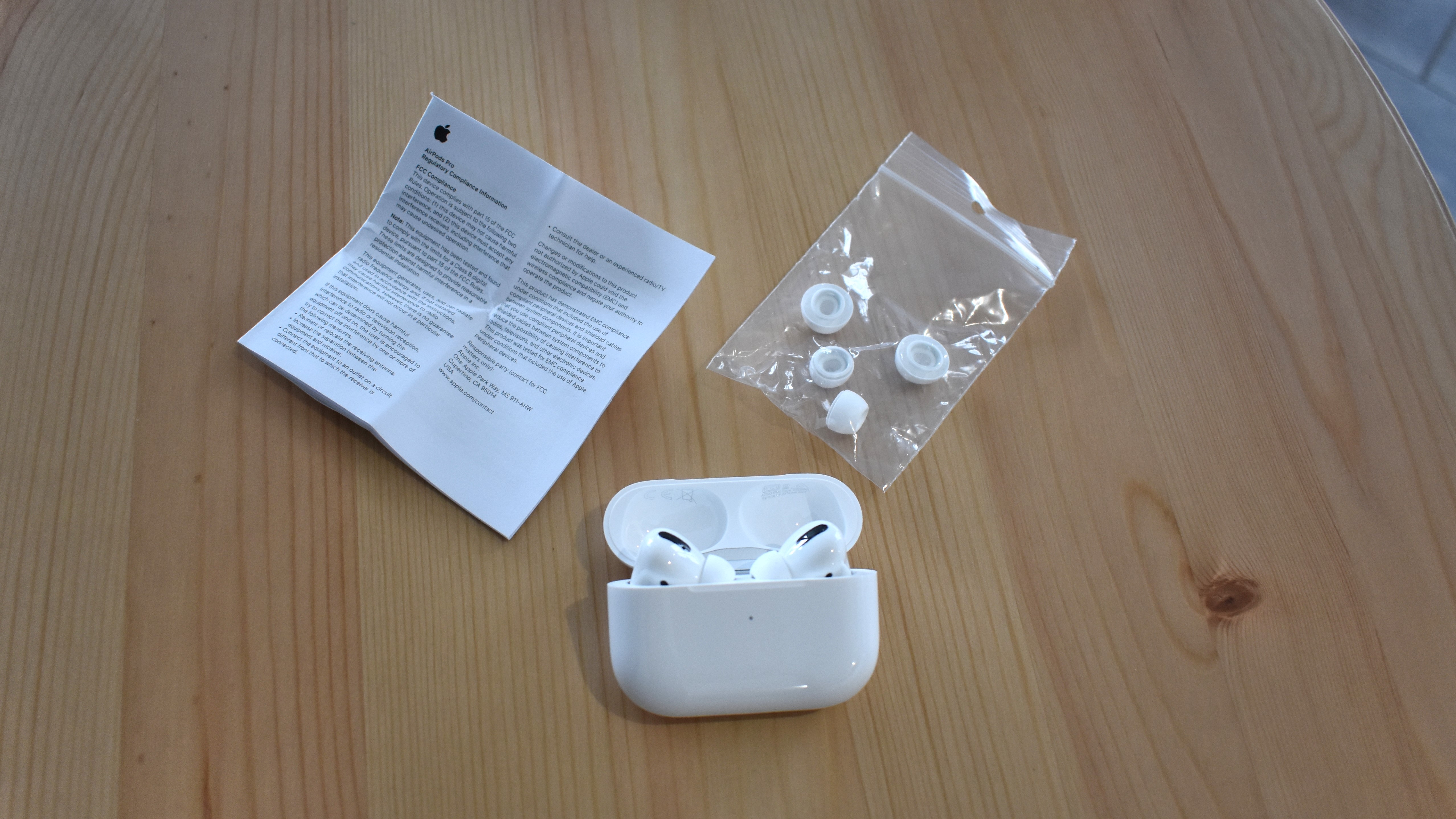
Inside the package, the Lightning charging cable you usually get with the AirPods Pro, but the earbuds themselves were safe and sound, nestled inside the charging case. A couple of additional silicone ear tips were also included in a separate baggie.
I’d bought the AirPods Pro in “Premium” condition, the closest to mint or near-mint condition on Reboxed’s scale. Refurb retailers often use such scales, and may sell models with greater cosmetic damage for even lower prices — as long as they’re still, theoretically, in full working order.
Get instant access to breaking news, the hottest reviews, great deals and helpful tips.
At first glance, I’d either chosen wisely or got lucky: both the AirPods Pro and the charging case were devoid of scratches and chips, while the status LED worked fine and the Lightning port was clear of debris. The case had a smudged fingerprint on the back and I brushed off a few tiny dark fibres, but the former was basically nothing and the latter could easily have come from a cleaning cloth.
I couldn’t tell if the ear tips were new or just very well cleaned, as there was no discoloration or odor to suggest they’d simply been wiped down.
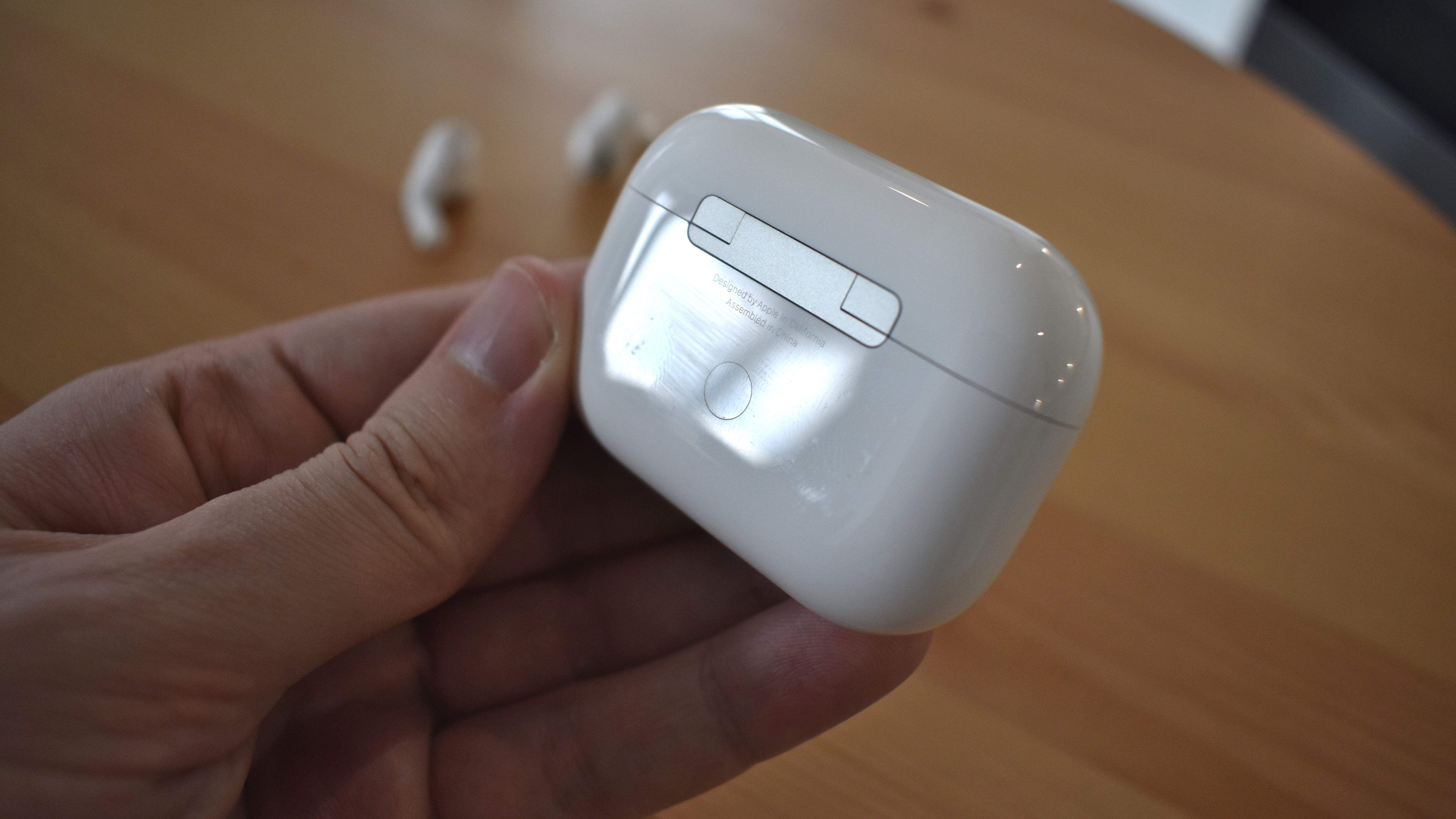
It wasn’t until I took a closer look at the inner pressure relief grilles that I found a few specks of…something. I’d like to think it wasn’t earwax — does anyone really get wax that high up their ears? — but while the specks were fractions of millimeters big, at the very least I decided to perform an extra scrub with a cloth until it was fully clean.
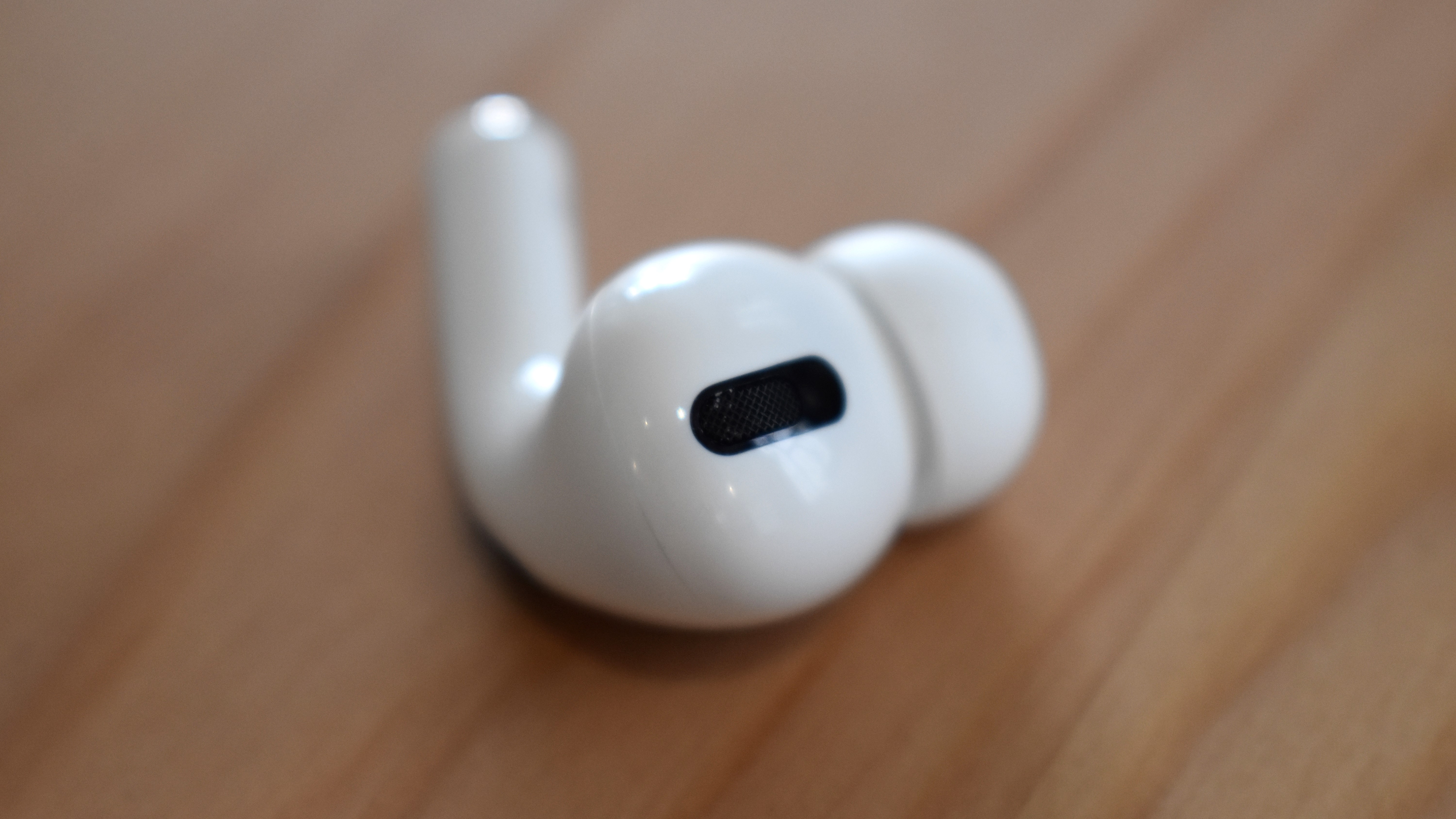
Functionally, this was a perfectly normal set of AirPods Pro. It paired to my phone without issue, played music to the high audio standard we’ve come to expect from Apple earbuds, and both Force Sensors performed normally.
Of course, having the AirPods be fully working should be the least you should expect, even with refurbs. But it’s worth stating that although I bought from a typical example of a refurbished product retailer, results may vary depending on where you buy from and the level of used/like new/mint condition you’re willing to pay for. You may or may not get different accessories or paperwork, and your refurbished AirPods or AirPods Pro may come with cosmetic damage if you purchase a particularly cheap pair.
Buying used AirPods: Is it a good idea?
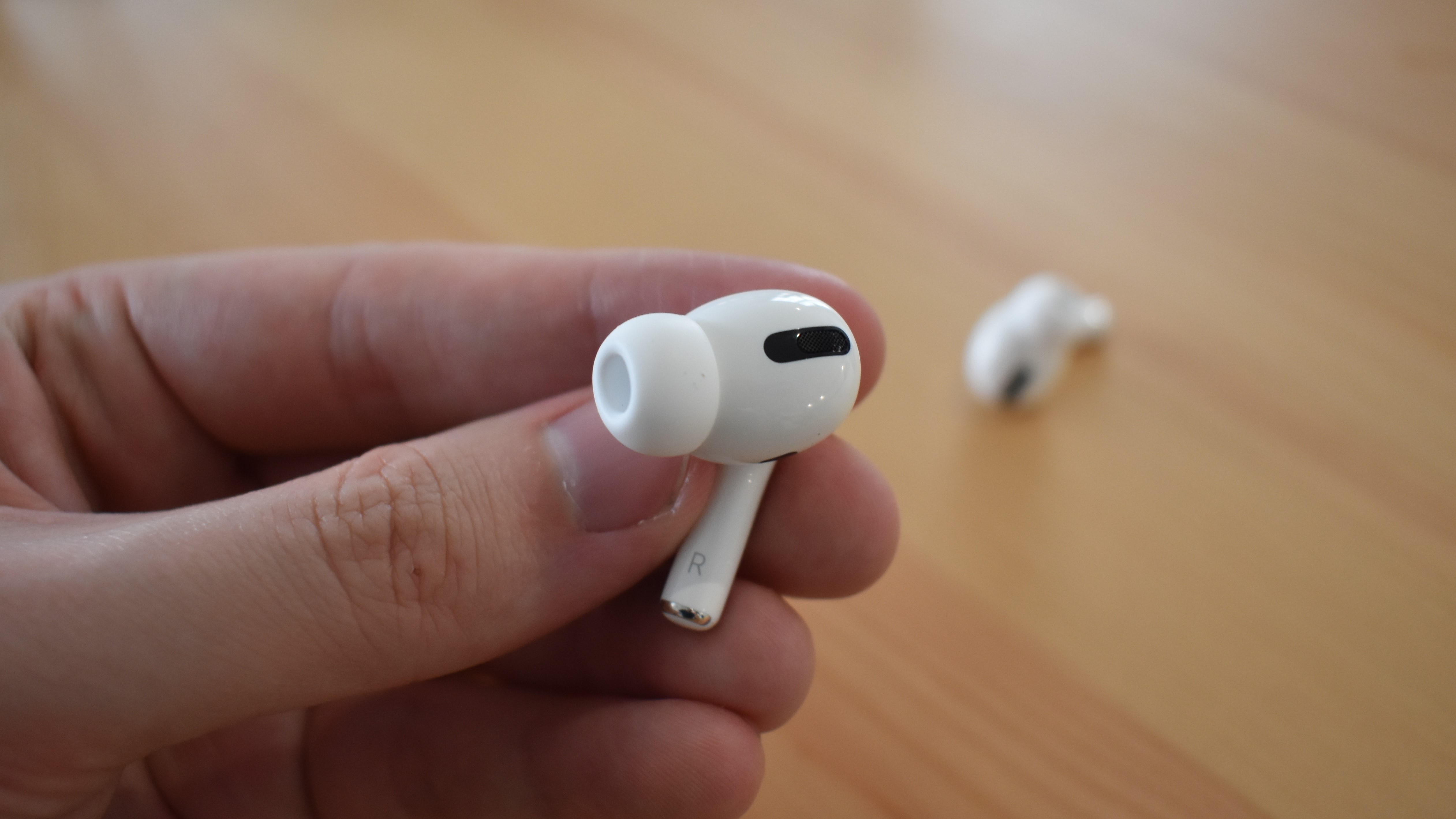
All that said, and even though I had to do a dash of extra cleaning, I think buying refurbished AirPods can be worthwhile. Yes, the notion that they’ve been in someone else’s ears is kind of gross in the abstract, but once you’ve got the earbuds in your hands you can see for yourself there’s nothing to be afraid of.
To be honest, after focusing for a minute on Bluetooth pairing, I completely forgot about this being a pre-owned set of buds until I was already listening. And I’m no tough guy: I shudder if I sit in a chair that someone else has left warm. But in this case, it’s like if someone with years of experience cleaning chairs has shown up, disinfected the chair, replaced any worn upholstery and politely handed me £70.
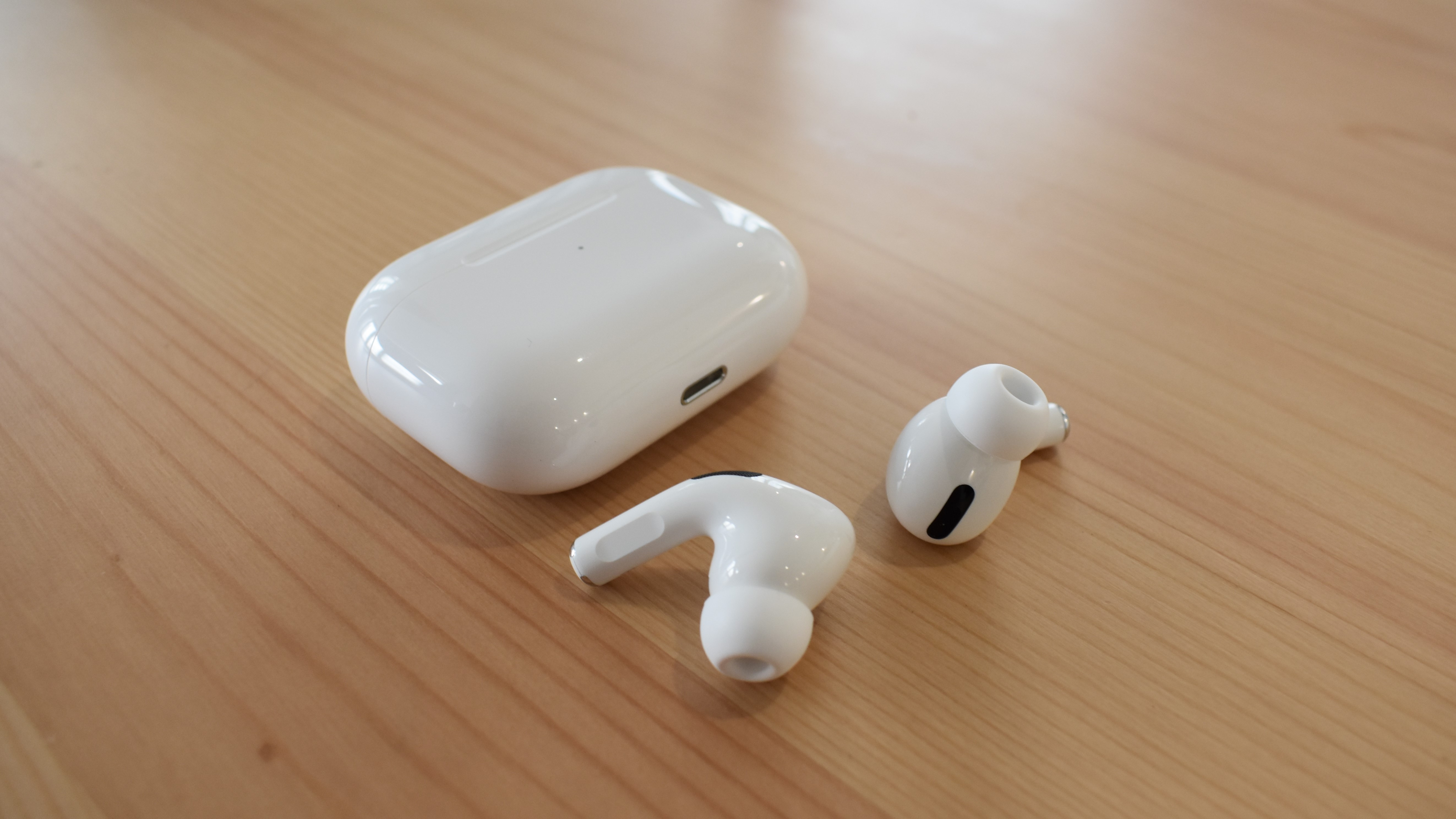
Again, your mileage may vary, and I’m less convinced of buying refurbished AirPods that have taken a few more bumps and scrapes just to knock the price down lower. Damage can be a reflection of how the original owner treated the hardware, arguably more so than it is of the refurbisher’s thoroughness. And a pair of AirPods or AirPods Pro that hasn’t been well taken care off could be more prone to technical problems you can’t see, or hadn’t come up at the time of refurbishment.
Still, I can say from experience that yes, you can buy refurbished AirPods or AirPods Pro and come away with a good deal.
Tips for buying used AirPods
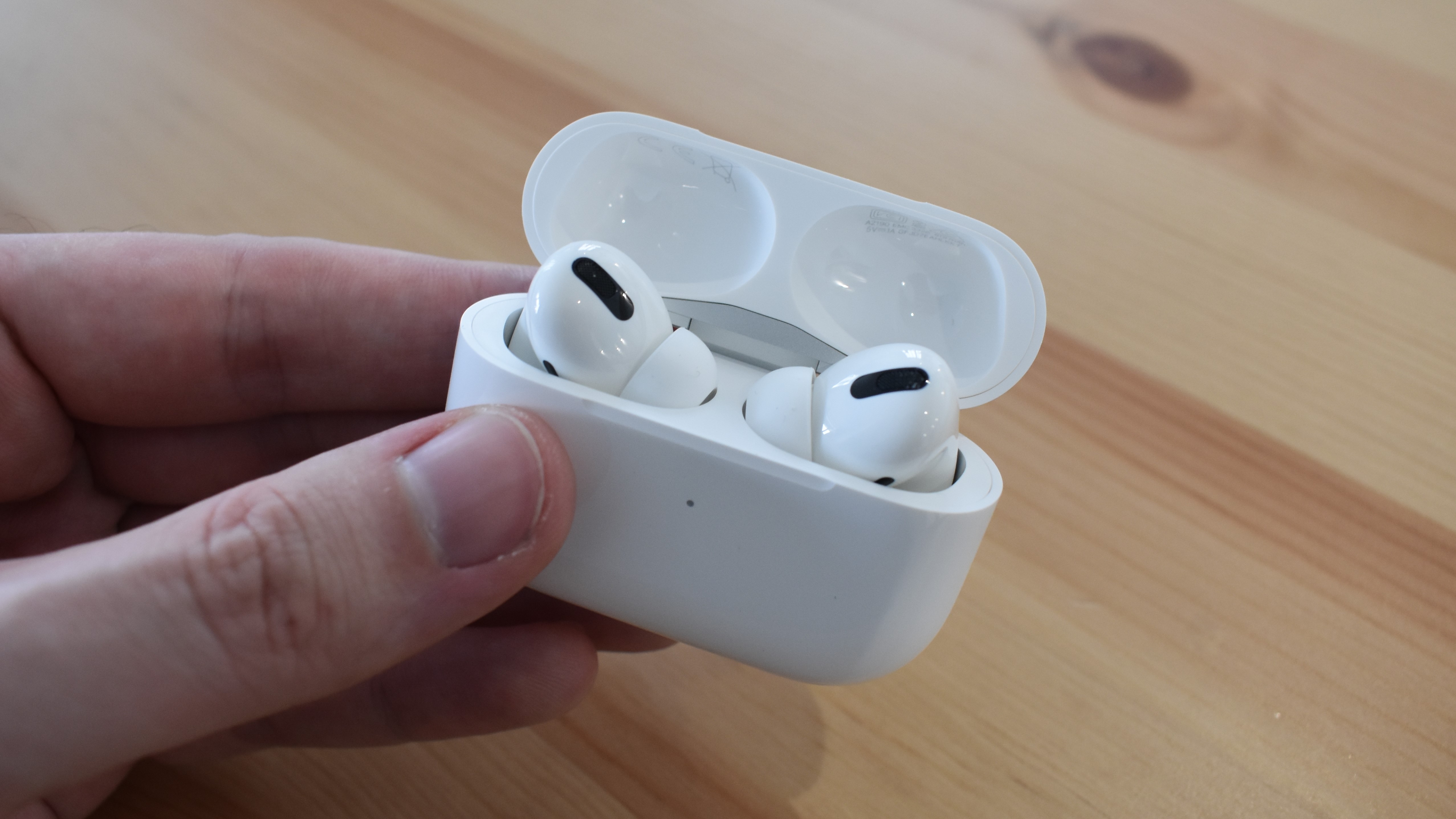
Try to buy from specialist retailers. This doesn’t need to be a retailer that specializes in refurbs per se, but many reliable electronics outlets will have a more standardized refurbishment process that should yield better results. Exercise caution with eBay: this is teeming with “seller refurbished” AirPods and AirPods Pro, but you can’t be as sure of their quality. eBay Stores can be trustworthy — VIPOutlet has a store, for one — though be sure to heed star ratings and buyer feedback.
Look for a guarantee. Another benefit of using an established retailer is you’ve got a better chance of your refurbished AirPods coming with a guarantee. Even if what you receive isn’t in the condition you were hoping for, this will make it much easier to return, either for a replacement or a refund. Reboxed, for instance, guaranteed my AirPods Pro against manufacturer faults for 15 months, and also offers a 30-day refund or replacement window. However, the guarantee doesn't cover accidental damage (including water damage) or any reduction in battery life compared to what you'd get from a new product.
Be prepared to buy your own accessories. By that I don’t mean the charging case: that should really come as standard. But you might need to supply your own Lightning charging cable, as I did with my otherwise good-condition AirPods Pro.
If in doubt, buy your own AirPods Pro tips. This obviously isn’t an option for the standard AirPods, but one approach you can take is buying a pair of refurbished AirPods Pro and fitting a brand-new, separately-purchased set of ear tips yourself. This way you can be absolutely sure that the component making the most contact with your ears haven’t been in somebody elses’. TG’s own Richard Priday particularly liked the Comply foam tips, but you can get the official AirPods Pro ear tips direct from Apple.
Bookmark the AirPods support page. As refurbed tech, including AirPods, may not come with the original manual, you may need to refer to the Apple support pages for guidance. Alternatively, you can find both the basics and extra tips and tricks in our How to use AirPods guide.
- More: Check out the best Apple AirPods alternatives

James is currently Hardware Editor at Rock Paper Shotgun, but before that was Audio Editor at Tom’s Guide, where he covered headphones, speakers, soundbars and anything else that intentionally makes noise. A PC enthusiast, he also wrote computing and gaming news for TG, usually relating to how hard it is to find graphics card stock.
